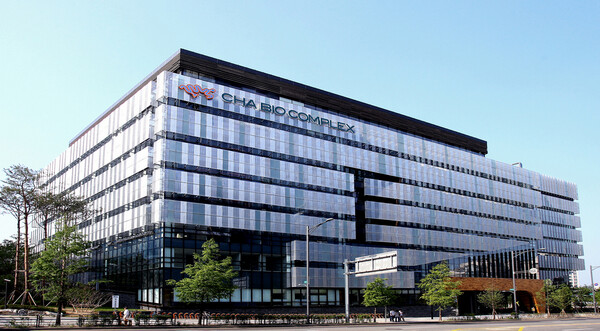CHA Biotech and Centenaire Biosciences have agreed to expand their collaboration on natural killer (NK) cell-antibody combination research. To this end, CHA Biotech transferred its NK cell therapeutic candidate to Centenaire Biosciences.
The two companies will combine CHA Biotech's NK cells with Centenaire's antibodies to determine the effectiveness of antibody-dependent cellular cytotoxicity (ADCC) and tumor cell death in various cancer types with high unmet needs.

Antibody-dependent cytotoxicity is a mechanism in which antibodies bound to cancer antigens interact with receptors on the surface of NK cells to activate NK cells. The activated NK cells increase their ability to kill cancer cells and secrete cytokines, which play an important role in anticancer activity.
Centenaire has a next-generation immune cell engager platform, “Twin Fc-ICE (Immune Cell Engager)” technology, which can increase various anticancer immune responses by immune cells, such as NK cells and macrophages. Based on Twin Fc-ICE, the company is developing several antibodies that target receptors, such as EGFR (epidermal growth factor receptor), GPC3 (glypican 3), and CD33 (sialic acid-binding immunoglobulin-like lectin), which are mainly found in lung, liver, and blood cancers.
"Through our research collaboration with Centenaire, we will be able to confirm the anti-cancer effects of NK cell and antibody combination in various hematologic and solid cancers," CHA Biotech CEO Lee Hyun-jung said. "We look forward to expanding our research collaboration to develop new cancer treatments with high unmet medical needs."
Before the tech transfer, CHA Biotech confirms the therapeutic effectiveness of Centenaire’s Twin Fc-ICE-based antibodies in combination with NK cells in breast, gastric, and other cancers.
CHA Biotech said it is strengthening its pipeline of NK cell therapeutics by entering into material transfer agreements with various domestic and foreign organizations to develop NK cell-antibody combination therapies.
In addition to antibody combination therapy, the company is developing CAR-NK cell therapy using chimeric antigen receptor (CAR) to enhance the therapeutic effect of NK cells. We are expanding the indications of our NK cell therapies to various solid tumors, including glioblastoma, ovarian, liver, and gastric cancers, and expanding our pipeline, it added.
Related articles
- CHA Biotech signs CDMO accord with Cell in Cells to supply organoid treatment
- CHA Biotech achieves record-breaking sales in 2023 on robust overseas biz
- CHA Biotech enhances NK cell’s anticancer efficacy using cationic compound
- CHA Vaccine Institute says its hepatitis B vaccine more effective than conventional vaccines
- CHA Biotech partners with Cancure to co-develop NK cell therapy

